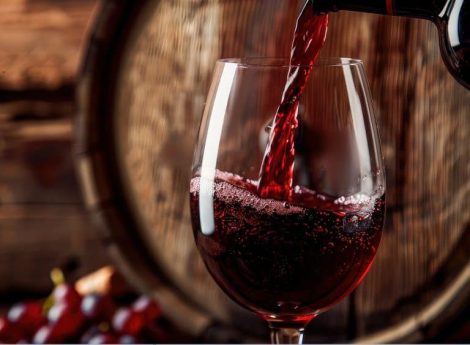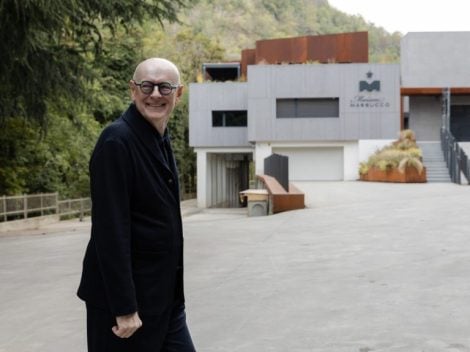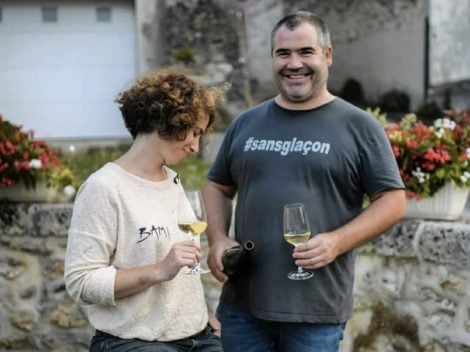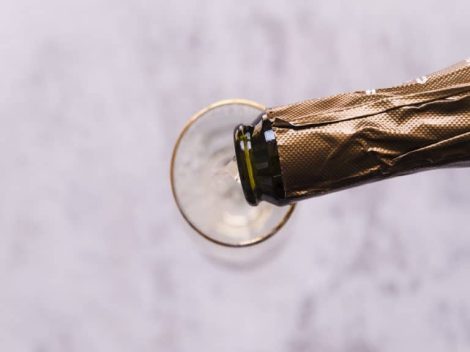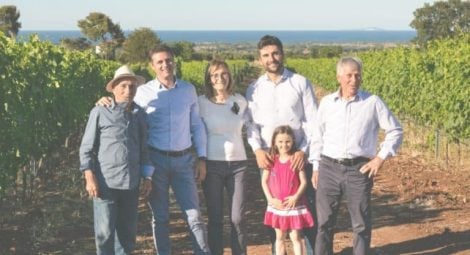A day entirely dedicated to manufacturers of Italian food and wine excellence: "Top Italian food & wine," last December 18 at the La Nuvola congress centre in Eur, hosted the presentation of the guides Top Italian food, Grandi Salumi and Berebene. Against this backdrop, in collaboration with Lazio Innova (a company under the Lazio Region body), the masterclass "The best of Lazio: Comparing Great Wines and Great Cured Meats" dedicated to the national and international sector press had the aim of introducing a selection of products of excellence in the field of cured meats and wine. The companies present, all from Lazio, were chosen from among those awarded with the highest score: Tre Fette in the Grandi Salumi guide and Tre Bicchieri in the Vini d'Italia 2023 guide.
The best of Lazio, agricultural region
Two Gambero Rosso experts presented the products: Mara Nocilla, curator of the guide Grandi Salumi, and William Pregentelli, among the editors of the Vini d'Italia and Berebene guides. In the Lazio Region there is one of the most important agro-industrial systems in Italy which represents 3% of the wealth of the entire regional economy and contributes, with 6.3 billion in annual turnover, to 6% of national agri-food production. The strengths of the Lazio agri-food industry are manifold: a wide range of top quality products, a strong link with the territory and its traditions, a marked propensity for innovation, and high safety standards. A sector that has 3,500 companies in the region with 20,000 employees, 63 high-quality brands (Dop, Igt, Igp, Doc and Docg) and 600 million euros in exports. Agriculture and agro-industry constitute an optimal ground for the integration of advanced technological contents deriving from numerous enabling sectors, such as aerospace, ICT, nanotechnologies, new materials and biotechnologies, thus arriving at the realisation of highly innovative solutions in areas such as precision agriculture and vegetable production in harsh environments.
Tastings
Le Fontanelle Contigliano (RI)
Le Fontanelle offers a 360-degree gastronomic and hospitality experience. Four generations have managed the 20 hectares of the property, 4 of which are mountain pastures. The business is now specialised in the production (and transformation in the corporate Osteria) of wild and semi-wild beef, lamb and pork. The cured meats are processed in the internal laboratory without any additives and preservatives. The prosciutto (Excellence) of Le Fontanelle was paired with Anthium Bellone '21 of Casale del Giglio (in Aprilia), a grape grown ungrafted in the Anzio area and which in 2023 won Tre Bicchieri for the third time in a row.
Macelleria Enzo Mattei Fondi (LT)
The Mattei family has been in the world of artisanal meats and cured meats for 35 years. Since the year 2000, the butcher shop has been curing Caserta pork, an autochthonous pig breed typical of lower Lazio, Campania and Molise. From these noble meats comes a fine line of cured meats and the famous Monte San Biagio sausage (PAT denomination), symbol of the territory, flavoured with coriander seeds. The project is to build an ad hoc farm in the province of Latina to further improve the quality of these pork specialties. Their Prosciutto Stagionato di suino razza casertana (Tre Fette) was also paired with Anthium Bellone '21 from Casale del Giglio.
Laureti Amaseno (FR)
At the end of the 19th century Biagio Lauretti created what today represents a solid family business, specialised in breeding cows and pigs for meat, and for some years now also dedicated to water buffalo. The company produces water buffalo, Chianina, Marche and black pork meats and cured meats, as well as mozzarella and other cheeses. Their Pancetta stagionata di maiale pesante (tre Fette) was paired with Donna Adriana '20 from the Castel de Paolis winery in Grottaferrata (Rome): a blend of viognier and malvasia del Lazio.
Avagliano Sabaudia (LT)
The Avaglianos' adventure in meat began over a century ago in the cattle trade in Cava de' Tirreni (Salerno province). Then the butcher shop was born in the centre of Sabaudia and, more recently, the adjoining sausage factory, managed by Vincenzo, the fourth generation, together with his children Manuele and Francesca. A few years ago the circle closed with the birth of a farm of "black Circeo" pigs. Their Guanciale di suino Nero del Circeo (Tre Fette) was paired with Donna Adriana '20 by Castel de Paolis.
Mamma Giovanna Gallinaro (FR)
Butcher shop, sausage production, steakhouse and agricultural cooperative since 1950 in the Val di Comino. The arrival point of a journey started by Celestino Morga who in the first half of the 1900s opened a shop for the sale of meat and the production of cured meats. Today the business is managed by the third generation (Federica and Alessandro). Since 2019 the company has been an agricultural cooperative. Their Salsiccia di Suino Nero (Tre Fette) was paired with the elegant Fiorano Bianco '20 of the Roman winery Tenuta di Fiorano.
Sherzerino Itri (LT)
Started in 1953 by Scherzerino La Rocca, it changed pace in the 90s with the third generation: Rino transformed it into a company specialised in quality cured meats, without preservatives and an innovative reinterpretation of tradition. Think coriander salami from Itri. Their Salamino al Coriandolo (Tre Fette), was paired with Ars Magna Viognier '20 by the Ômina Romana winery in Velletri: the first Tre Bicchieri for this beautiful and interesting reality.
Antica Macelleria Pellegrini Patrica (FR)
Peasant origins and Ciociaria traditions intertwine with the selection and transformation of the meats. Leading this sausage manufacturing reality is the Carne&Carni Cooperative led by the same family that started the business in 1912. The cured meats are produced in artisanal fashion, some from black pigs from the Lepini Mountains. The flagship product is Zazzicchia, an ancient Ciociaria cured meat that Marco Pellegrini makes following an old family recipe. His Porchetta (Tre Fette) was also paired with Donna Adriana '20 by Castel de Paolis.
Coccia Sesto Viterbo
Nonno Nazzareno was a pork butcher in Preci near Norcia, in the early 1900s. His son Sesto followed him and during WWII he moved to Viterbo where he opend his sausage production. In 1978 the new factory was born. One of the flagship products is the Susianella di Viterbo, a Renaissance sausage made with pork corata and protected by a Slow Food Presidium. The Susianella (The Fette and Best Offal Salami Award) was paired with Baccarossa '20 by Poggio Le Volpi, Nero Buono in purity.

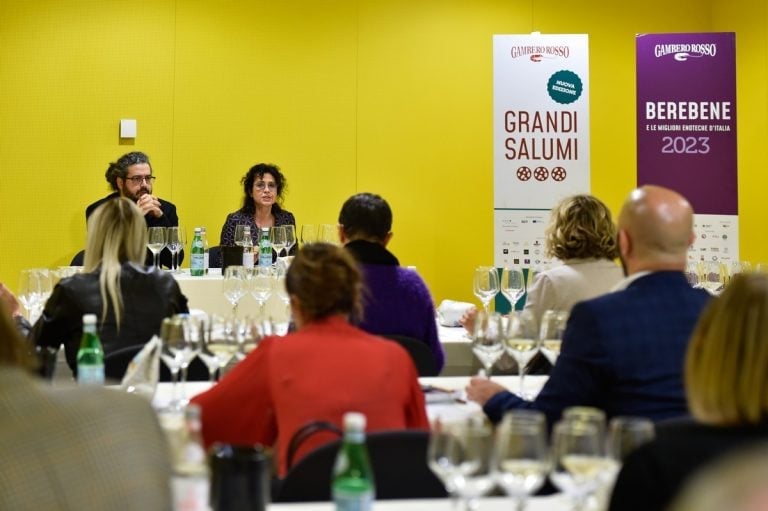
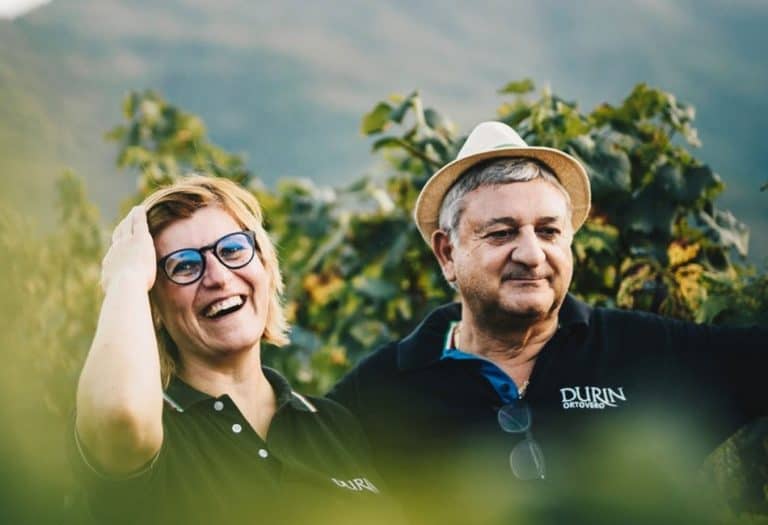 In Liguria, there’s a historic winery producing the best Vermentino in the Region with the best value-for-money
In Liguria, there’s a historic winery producing the best Vermentino in the Region with the best value-for-money "Behind the champagnes of small producers lie the great cooperatives." An unfiltered interview with Bruno Paillard
"Behind the champagnes of small producers lie the great cooperatives." An unfiltered interview with Bruno Paillard From Champagne to Lambrusco, the future of wine belongs to sparkling wines
From Champagne to Lambrusco, the future of wine belongs to sparkling wines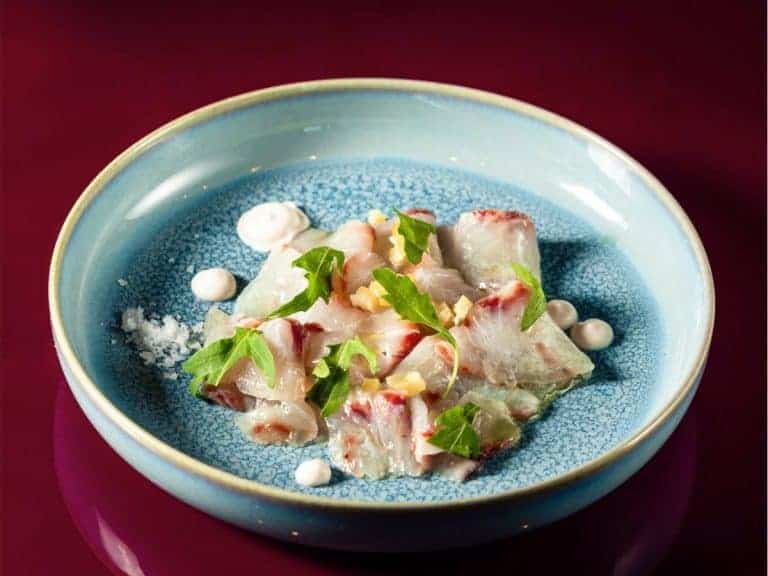 Where to eat in Rome and Lazio: the four newcomers of the year according to Gambero Rosso
Where to eat in Rome and Lazio: the four newcomers of the year according to Gambero Rosso Cult Champagne: 10 unforgettable labels tasted in 2024
Cult Champagne: 10 unforgettable labels tasted in 2024